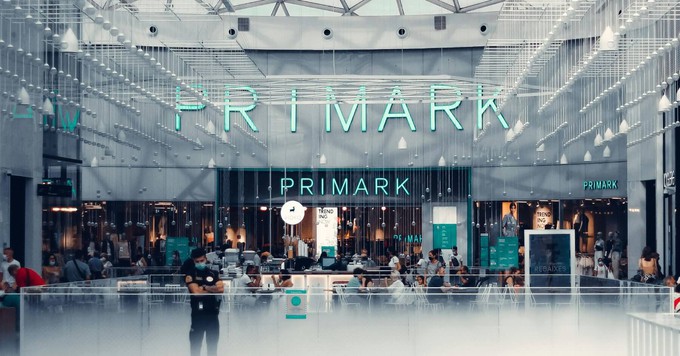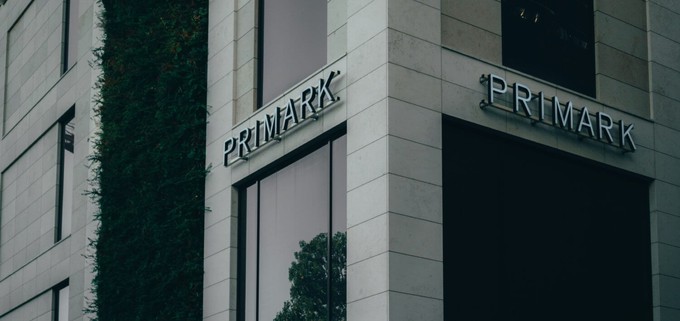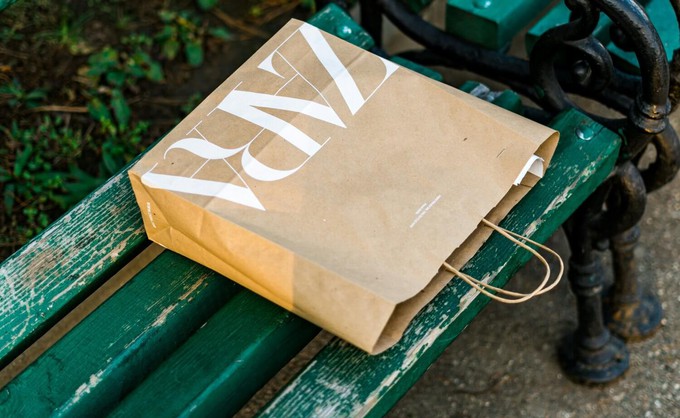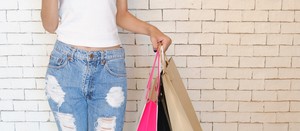- Clothes
- Bags
- Accessories
-
Inspiration
- Shoes
Are Your Favourite High Street Brands Worse Than Primark?

People are slowly waking up to the horrors of fast fashion. When they do, Primark tends to be the first brand they give up.
If that’s the case for you too, it’s a great start!
What about the other high street brands you’re still supporting, though? Are they really that much better than Primark from an ethical and sustainable point of view?
Well, some of them are even WORSE (yes, even if their price tags are slightly more expensive).
Sure, Primark = fast fashion…

When we think of fast fashion, Primark is usually the first brand that comes to mind.
After all, it outsourced to the sweatshop involved in the Rana Plaza disaster, and it still sells tops that are as cheap as £2.
We have to admit Primark did make some positive changes, like committing to the Cotton Pledge and Bangladesh Accord and only working with factories that respect their Code of Conduct (so they claim, at least).
Let’s face it, though:
- Primark is not transparent – It only scored 31-40% in the Fashion Transparency Index. Usually, when brands aren’t transparent about their supply chain, it’s because they have something to hide. No wonder it’s gone through so many scandals and allegations
- It doesn’t guarantee a living wage – They say they’re working towards it. So, at this stage, the chances are… its consumers are buying clothes made by garment workers who are NOT paid a living wage
- The biggest problem is its entire business model – Primark literally relies on overproducing cheap, low-quality clothes and encouraging consumers to treat them as disposable, which is TERRIBLE for the planet. There appears to be no evidence that they’re minimising their textile waste either
These are some of the reasons why Primark is considered “not good enough” from an ethical and sustainable point of view.
So, what about other fashion brands that are usually seen as better than Primark?
These popular high street brands scored even WORSE than Primark, though (are you buying from them?)

To offer you an objective overview, we decided to refer to the Know the Chain benchmark. Looking at lots of different factors (like transparency and traceability), this third party analyses the supply chains of big brands and calculates the risk of forced labour.
You might not be surprised to find out that Primark only scored 46/100. What might come as a shock, however, are the names of fashion brands that scored worse than Primark, and especially:
- Gap: 43
- Ralph Lauren: 42
- Next: 39
- Inditex (parent company of fashion brands like Zara, Pull&Bear, Bershka, and Stradivarius): 38
- Boohoo: 21
- Levi Strauss: 30
- Prada: 9
“What about H&M?” I hear you ask.
Well, only 3 points more than Primark!
“But I thought they were better!”
Trust me: so did I!
Years ago (long before I co-founded this search engine for ethical clothing), I used to buy from popular high street stores all the time.
Then, when I discovered the ugly truth behind fast fashion, I went cold turkey. After a year, I went into H&M and was surprised to find a so-called conscious collection. So, I genuinely thought things had improved.
Turns out, fashion brands that are slightly more expensive than Primark aren’t necessarily better from an ethical point of view. They’re just better at greenwashing!
“What about luxury fashion?”
You’d think that, when an item costs hundreds or thousands of pounds, it was made sustainably and by workers who are paid fair wages, right?
Unfortunately, that’s not always the case. What you’re really paying for is the brand and logo.
For example, Loro Piana’s $9,000 sweaters rely on unpaid farmers, and some luxury fashion brands use the same sweatshops as fast fashion stores (crazy, we know).
How can you make more ethical fashion choices as a consumer?

Have you just realised you’ve been supporting brands that are just as bad as Primark (if not worse)? Don’t feel bad: you didn’t know!
Now that you do, though, you can choose to make a difference. How?
- Look at price tags differently – If a garment costs so little that it seems too good to be true, it’s usually because it hides a high cost. That’s why ethical clothes tend to be more expensive. However, just because something costs a bit more (like H&M and Zara’s clothes) or is MUCH pricier (like luxury fashion), it doesn’t automatically mean it was made ethically. So, you must find out what you’re actually paying for: eco-friendly materials and a fair trade production, or a logo? (Keep reading to find out how)
- Support ethical brands, and focus on transparency – Check a brand’s website: can they tell how they outsourced their materials and who made their clothes? Have they got any third-party certifications? Do they visit their factories regularly? If not, that’s usually a bad sign
- Change your mindset around clothes – The solution is NOT to buy the same number of clothes from sustainable brands. If you want to make more ethical fashion choices, we recommend going from “seeing clothes as disposable, and buying them whenever you feel like it” to “only investing in clothes that were made ethically and to last, re-wearing them for years”
At Project Cece, we want to help you do this without wasting hours browsing different websites online. So, we brought hundreds of fair trade brands in one place and added filters to narrow down your choices.
Quitting Primark’s cheap clothes was a fantastic first step towards a more ethical lifestyle. Now, it might be time to reconsider other high street brands and their dodgy greenwashing, too.
Share our story
Related articles
Fast Fashion Is Bad: Why Do We Keep Buying It? (+ Solutions)
From #FOMO to dopamine addiction (yes, really), here are 7 reasons why people keep buying fast fashion. The silver lining? They all have a solution!
The Devil Wears… Ultra Fast Fashion. Do You?
Sweatshops, environmental damage, and a negative effect on young consumers’ mental health: meet ultra fast fashion and its sinful consequences.
How to Ditch Fast Fashion & Switch to Ethical Clothes: 10 Tips
Ready to take the first step towards a more sustainable wardrobe? Here are some practical tips to ditch fast fashion and discover ethical alternatives.
Project Cece is a platform that collects ethical fashion from vetted brands and shops in one place. Browse ethical fashion for women and men and find items that fit your style, budget and values!
_large.png)


